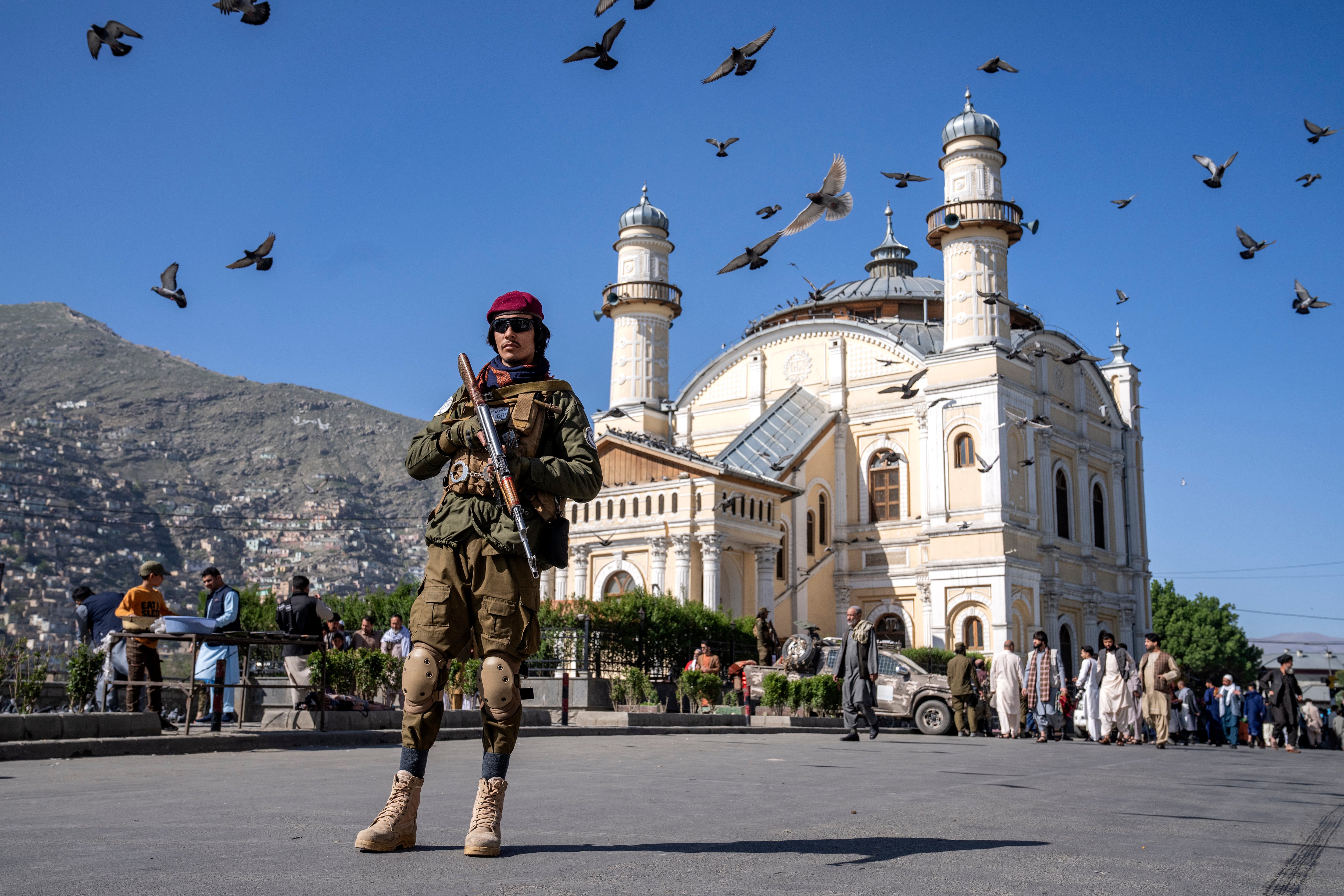UN draft urges Afghan rulers to reverse bans on women, girls
A U.N. resolution that calls on Afghanistan’s Taliban rulers to swiftly reverse their increasingly harsh restrictions on women and girls and condemns their ban on Afghan women working for the United Nations is set to be voted on Thursday by the Security Council

A U.N. resolution that calls on Afghanistan’s Taliban rulers to swiftly reverse their increasingly harsh restrictions on women and girls and condemns their ban on Afghan women working for the United Nations is set to be voted on Thursday by the Security Council.
The draft resolution, obtained late Wednesday by The Associated Press, expresses “deep concern at the increasing erosion of respect for the human rights and fundamental freedoms of women and girls in Afghanistan by the Taliban” and reaffirms their “indispensable role” in Afghan society.
It calls on the Taliban to swiftly restore their access to education, employment, freedom of movement and equal participation in public life.
The resolution, drafted by the United Arab Emirates and Japan, is scheduled to be voted on by the 15-member council on Thursday afternoon. Diplomats said it is almost certain to be approved, though Russia and China might abstain.
The Taliban seized power in August 2021 as U.S. and NATO forces were pulling out of Afghanistan after two decades of war and initially promised a more moderate rule than during their first stint in power from 1996 to 2001. But there has been growing international consternation as Taliban leaders have gradually re-imposed their harsh interpretation of Islamic law, or Sharia, on women and girls.
Girls have been barred from school beyond the sixth grade and women are banned from most jobs, public spaces and gyms. In late December, the Taliban banned aid groups from employing Afghan women, and on April 4 they extended the ban to Afghan women working for the U.N. — a decision the draft resolution calls “unprecedented in the history of the United Nations.”
The U.N. has warned that the ban could cripple desperately needed aid deliveries, and lead to a U.N. pullout from Afghanistan.
Since April 5, the 3,300 Afghans employed by the U.N. — 2,700 men and 600 women — have stayed home, but U.N. spokesman Stephane Dujarric has said they continue to work and will be paid. The U.N.’s 600-strong international staff, including 200 women, is not affected by the Taliban ban.
Roza Otunbayeva, a former president and foreign minister of the Kyrgyz Republic who heads the U.N. political mission in Afghanistan known as UNAMA, responded to the Taliban's ban on Afghan women working for the 193-nation world body by ordering an operational review of the U.N.’s presence in the country, which will last until May 5.
Before the review is completed, U.N. Secretary-General Antonio Guterres will host an international meeting on Afghanistan in Doha, the capital of Qatar, on May 1-2. U.N. spokesman Stephane Dujarric said last week that the closed meeting will be attended by envoys on Afghanistan from various countries with the aim of seeking a “durable way forward” for the country.
His announcement followed an April 17 speech at Princeton University by Deputy Secretary-General Amina Mohammed, who led a high-ranking U.N. delegation to meetings with Taliban ministers in January, previewing the Doha meeting.
“Out of that, we hope that we’ll find those baby steps to put us back on the pathway to recognition (of the Taliban), a principled recognition,” Mohammed said. “Is it possible? I don’t know. (But) that discussion has to happen. The Taliban clearly want recognition, and that’s the leverage we have.”
The draft resolution being put to a vote would reaffirm the U.N.’s support for “a peaceful, stable, prosperous and inclusive Afghanistan” and for an “inclusive Afghan-led and Afghan-owned determination of the country’s political future and development path.”
It would also recognize the many challenges Afghanistan faces, stress the urgent need to address “the dire economic and humanitarian situation” in the country, and reiterate that women are essential to the delivery of humanitarian aid.
The draft urges all other U.N. member nations to use their influence to promote “an urgent reversal” of the Taliban’s policies and practices toward women and girls.
Bookmark popover
Removed from bookmarks